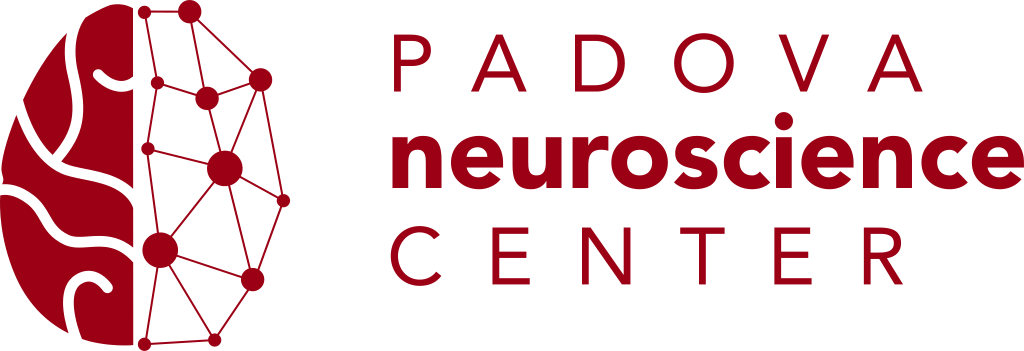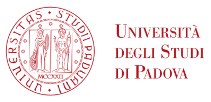Criticality Working Group
PI: Judit Gervain, Samir Suweis, Marco Dal Maschio, Marco Zorzi
Team members: Jesus Encinas, Silvia Polver, Jessica Gemignani, Benedetta Mariani, Ramon Guevara, Fabrizio Lombardi, Irem Topal, Alberto Testolin
Understanding the mechanisms behind the brain’s capacity for information transmission, processing, and storage remains a challenge in neuroscience. The theory of critical phenomena in physics posits that these processes may operate at a phase transition between order and chaos, in a critical state. Criticality is characterized by erratic fluctuations in a dynamical system undergoing a phase transition. Criticalities have been used to capture a wide variety of phenomena, e.g. ferromagnets or earthquakes. Recent findings suggest that approaching neural mechanisms as critical phenomena provides novel insights into well known behavioral, perceptual, cognitive and neural processes. The main purpose of the Criticality Working Group is, therefore, to apply the theory of critical phenomena to neural processes to better understand brain function in an interdisciplinary perspective.
Activities
(I) Joint publications by members of the working group
Mariani, B., Nicoletti, G., Barzon, G., Ortiz Barajas, M. C., Shukla, M., Guevara, R., Suweis, S.S., Gervain, J. 2023. “Prenatal experience with language shapes the brain”. Science Advances. 9, eadj352.
(II) Joint funding
FARE Grant, Italian Ministry of Education (129 000 €; PI: Judit Gervain, co-PI: Samir Suweis)
(III) Presentations within PNC
Judit Gervain, Ramón Guevara, Samir Suweis: “Criticality in the critical period: Approaching human development through the lens of statistical physics”. Talk given at the PNC Working Groups Event, Jan 31st, 2023.
(IV) Joint activities
- Regular meetings
- Shared document repository
- Shared datasets
(V) PhD project
Multimodal Imaging through System Theory Analysis (MISTA)
PI: Michele Allegra, Alessandra Bertoldo, Stefano De Marchi, Samir Suweis, Antonino Vallesi, Marzo Zorzi
Team members: Giacomo Barzon, Benedetta Mariani, Luca Taffarello, Federico Calesella, Giorgia Baron, Giulia Vallini
The central goal of the WG is to develop computational models that integrate data from multimodal neuroimaging and use them to understand and predict the systemic effects of perturbations arising from pathological processes or, conversely, therapeutic interventions. Our modeling approach incorporates structural, functional, metabolic, molecular, and bioelectric data to create a model that combines large-scale effective connectivity with local biophysical mechanisms. It also leverages dynamic reduction techniques to characterize the global effects of perturbations.
Activities
Funding
PNRR “MNESYS”: Unraveling Brain Dynamics in DMMPatients: A Multi-Modal Imaging Approach Through System Theory- INSIGHT. PI. A. Bertoldo, Co-PI: S. Suweis. 319.000 €.
Robotics & Neuroscience Working Group
PIs: Alessandra Del Felice, Emanuele Menegatti
Team members: Manfredo Atzori, Patrizia Bisiacchi, Margherita Bertuccelli, Luca Tonin, Stefano Tortora, Stefano Vassanelli
Robotics represents a rapidly expanding field with diverse applications, among which rehabilitation and assistance. To ensure that robotic devices address real world clinical needs and that their development aligns with physiological and neurophysiological requirements, this highly interdisciplinary working group has established a robust research trajectory. This research integrates sophisticated robot design and control algorithms based on users’ cerebral and muscular signals to address pressing clinical issues. The incorporation of comprehensive clinical, neurophysiological and psychological knowledge into the programming and control of assistive and rehabilitative robots is expected to facilitate enhanced human-robot integration. This integration, in turn, will advance both the field of neurorobotics and its clinical applications. By leveraging neurophysiological inputs, these advanced robots can potentially offer more intuitive and adaptive support to users, thereby improving therapeutic outcomes and quality of life for individuals requiring assistance or undergoing rehabilitation.
Activities
(I) Joint publications by members of the working group
Bertuccelli Margherita, Tortora Stefano, Pasinato Mariasole, Trombin Edoardo, Tasinazzo William, Bisiacchi Patrizia, Baba Alfonc, Sparacino Giovanni, Menegatti Emanuele, Del Felice Alessandra. Quantitative assessment of human-exoskeleton integration through a neurophysiological marker of embodiment. Under review. IEEE Transaction on Neural Systems & Rehabilitation Engineering.
Bettella, F., Tortora, S., Menegatti, E., Petrone, N., & Del Felice, A. (2025). A scoping review on lower limb exoskeleton actuation’s description and characteristics. Robotica. Published online 2025:1-18.
Margherita Bertuccelli, Stefano Tortora, Edoardo Trombin, Liliana Negri, Patrizia Bisiacchi, Emanuele Menegatti, Alessandra Del Felice Human-Robot interactions: psychoaffective and cognitive factors to boost acceptance and usability of assistive wearable devices. A Multimodal Technol. Interact. 2025, 9(1), 5; https://doi.org/10.3390/mti9010005
Tortora S, Rubega M, Formaggio E, Marco RD, Masiero S, Menegatti E, Tonin L, Del Felice A. Age-related differences in visual P300 ERP during dual-task postural balance. Annu Int Conf IEEE Eng Med Biol Soc. 2021 Nov;2021:6511-6514. doi: 10.1109/EMBC46164.2021.9630088.
Rubega M, Di Marco R, Zampini M, Formaggio E, Menegatti E, Bonato P, Masiero S, Del Felice A. Muscular and cortical activation during dynamic and static balance in the elderly: A scoping review. Aging Brain. 2021 Apr 7;1:100013. doi: 10.1016/j.nbas.2021.100013.
Tortora S, Tonin L, Sieghartsleitner S, Ortner R, Guger C, Lennon O, Coyle D, Menegatti E, Del Felice A. Effect of Lower Limb Exoskeleton on the Modulation of Neural Activity and Gait Classification. IEEE Trans Neural Syst Rehabil Eng. 2023;31:2988-3003. doi: 10.1109/TNSRE.2023.3294435.
Tortora S, Beraldo G, Bettella F, Formaggio E, Rubega M, Del Felice A, Masiero S, Carli R, Petrone N, Menegatti E, Tonin L. Neural correlates of user learning during long-term BCI training for the Cybathlon competition. J Neuroeng Rehabil. 2022 Jul 5;19(1):69. doi: 10.1186/s12984-022-01047-x.
Rubega M, Formaggio E, Di Marco R, Bertuccelli M, Tortora S, Menegatti E, Cattelan M, Bonato P, Masiero S, Del Felice A. Cortical correlates in upright dynamic and static balance in the elderly. Sci Rep. 2021 Jul 8;11(1):14132. doi: 10.1038/s41598-021-93556-3.
(II) Joint funding
INTELLEXO – Cascade project FAIR Spoke 5. Funded by: PIANO NAZIONALE DI RIPRESA E RESILIENZA (PNRR) – MISSIONE 4 COMPONENTE 2, “Dalla ricerca all’impresa” INVESTIMENTO 1.3 (€ 140.000). PI: Stefano Tortora, Co-PI: Emanuele Menegatti, Alessandra Del Felice & Luca Tonin participants
Gerontotechnologies – AGE-IT Spoke 9. Funded by: PIANO NAZIONALE DI RIPRESA E RESILIENZA (PNRR) – MISSIONE 4 COMPONENTE 2, “Dalla ricerca all’impresa” INVESTIMENTO 1.3, Creazione di “Partenariati estesi alle università, ai centri di ricerca, alle aziende per il finanziamento di progetti di ricerca di base” 2024 (€ 550.000). PI: Emanuele Menegatti, Co-PI Alessandra Del Felice, Stefano Tortora & Margherita Bertuccelli participants
REinforcing BALANCE with a neurally-driven wearable assistive device (PRIN: Progetti Di Ricerca Di Rilevante Interesse Nazionale – Bando 2022 Prot. 2022YPK5YB) (€ 220.000). PI Alessandra Del Felice. Emanuele Menegatti, Stefano Tortora & Margherita Bertuccelli participants
SoftAct -Prevention of falls: a synergic soft exoskeleton with integrated muscle and brain biosignals to minimize gait instability in the elderly. Ministry of Affari Esteri e della Cooperazione Internazionale NUMBER-PGR00807 2018 (€ 160.000). PI: Alessandra Del Felice. CoPI: Emanuele Menegatti, Stefano Tortora & Margherita Brtuccelli participant
PROGAIT – Physiological and Rehabilitation Outcomes Gains from Automated Interventions in Stroke Therapy, H2020-Marie Skłodowska Curie Action 2017, RISE (€ 157.000). PI: Alessandra Del Felice, Emanuele Menegatti CoPI, Stefano Tortora participant
(III) Presentations within PNC
PNC Seminar: Prof. Paolo Bonato, Dept. of Physical Medicine and Rehabilitation, Harvard Medical School, “Precision Rehabilitation Interventions in Neurological Patients Undergoing Robot-Assisted Motor Training”, 2023/11/02
PNC Seminar: Alessandro Farnè, Lyon Neuroscience Research Center, France, “Humans embody tools to use them like hands. How’s that?”, 2024/05/23
Clinica Neurologica-PNC co-hosted Seminar: (Martedì della Clinica Neurologica 2024), Prof. Nick Ward “Recovery after stroke: present and future perspective”, 2024/03/05
PNC Seminar: Prof. Alessandra del Felice – Prof. Emanuele Menegatti “Bridging neuroscience and robotics: wearable robots for innovative rehabilitation and healthy ageing”, 2022/03/17 h. 15:00
(IV) Joint activities
-
Regular monthly meetings
-
Shared labororaty facilities
-
Shared data collection and experimental set up
-
Shared document repository
-
Shared datasets
(V) PhD project
Smart exoscheleton for mobility in agriculture, PhD program in Neuroscience, XXXVII cycle funded by ESF REACT-EU (PON “Ricerca e Innovazione” programme), PhD candidate Francesco Bettella. Supervisor Alessandra Del Felice, Co-Supervisor Emanuele Menegatti

